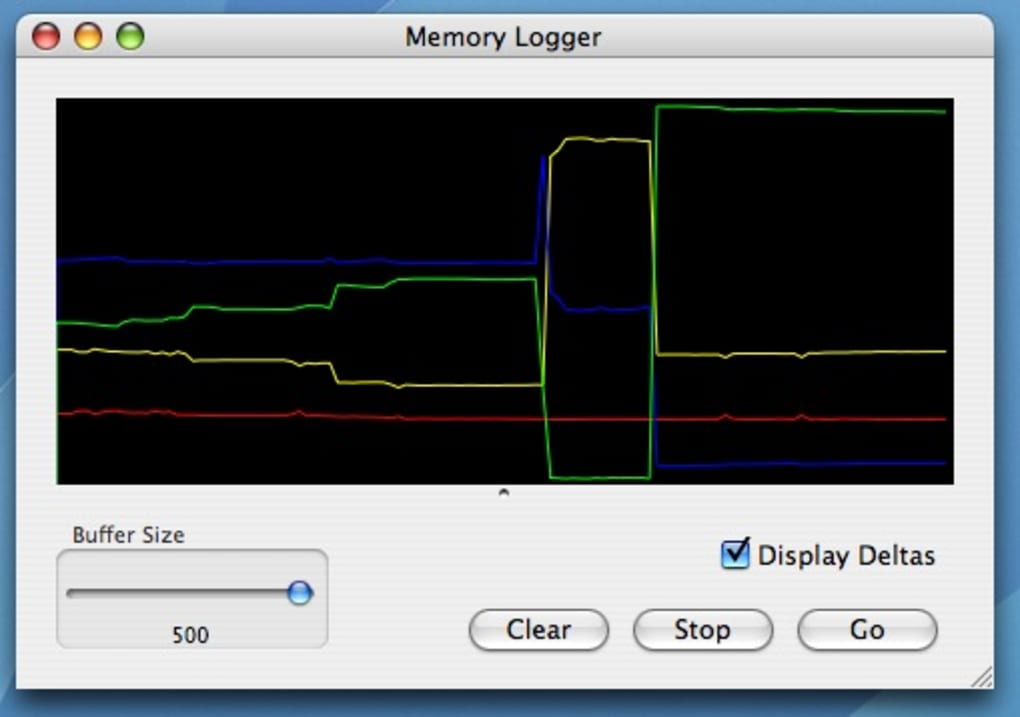
- #MAC IFREEMEM UPDATE#
- #MAC IFREEMEM MANUAL#
- #MAC IFREEMEM UPGRADE#
- #MAC IFREEMEM SOFTWARE#
- #MAC IFREEMEM FREE#
#MAC IFREEMEM MANUAL#
If there is no "automatic" way that Logic will release the memory, can some of you more OSX-savvy folks share a manual process of accomplishing it?īTW - I thought nobody lived in areas colder than me. That's because even the Logic plug-ins and VIs exhibit the same behavior. I am also pretty skeptical that ALL the 3rd party developers got something wrong with their implementation of AU plug-ins. I see a lot of generic complaints on various forums about Logic's lack of ability to address RAM due to it's 32bit architecture, but this is altogether different, IMO. What am I missing here, folks?! I'm sure that I'm not the only one using these VIs (see signature).

At some point, the program should realize that it NEEDS to access that "reserved" RAM. If Logic is "reserving" the memory in some fashion, why does it grab MORE memory for any additional VIs/plug-ins added to the project?! Shouldn't it access it's reserved RAM? Moreover, I can literally cause the out of memory crash in Logic just by adding and deleting virtual instruments! Certainly, that shouldn't be case. Questions? Comments? Post them below or email us!īe sure to check us out on Twitter and the CNET Mac forums.- Thanks for the info.
#MAC IFREEMEM SOFTWARE#
Incompatibilities with system software are the main reason why utilities and programs function improperly. Additionally, double-check with the developer's Web site to be sure they are compatible with your system version. However, developers cannot take into account all system configurations, so be sure to back up your system before running any utilities for the first time. Since these utilities were recently updated, these are actively being developed and are currently assumed to work. Keep in mind that while utilities can help in a vast majority of cases, as with any software, they can be buggy. Scan and delete unnecessary files on your Mac.ĭeletes the invisible. Network protocol analyzer and packet sniffer. Maintenance, optimization and system personalization tool. Here are some screenshots of the program working its magic on my system (PowerMac G5, 2GB RAM, OS X 10.5.8): Before running iFreeMem, I had about 255MB of available memory The program warns you of potential slowdowns during optimization During optimization, a progress bar is shown, and much more memory is used (this lasts about 10-15 seconds) After optimization I now have 825MB free-over 3x what I had previouslyįix, clean, maintain and manage your system.
#MAC IFREEMEM FREE#
Granted you can always restart your computer to free RAM, but this utility seems to be a convenient alternative.

The program seems to work well, and I was able to see a significant reduction in RAM footprint by the system and my open applications after running it. The application has been updated to version 3.5, and is compatible with OS 10.3.9 and later (Snow Leopard as well). Primarily the program will actively free memory caches and prevent them from growing too large. In these instances, a program like "iFreeMem" may be useful, which helps optimize how memory is used, and offers to free up much unused RAM for other applications to use.

#MAC IFREEMEM UPGRADE#
While upgrading RAM is the easiest solution for this, many times people either cannot upgrade their RAM capacity or do not have the means to do so. Additionally, programs will sometimes reserve unneeded memory, or memory may get fragmented just like hard drives. This may happen more frequently if you run programs that inefficiently use RAM (commonly referred to as "memory hogs"), or even if you open and close a lot of programs and files, which can fill RAM caches and use up memory. Granted, computers now manage virtual memory very efficiently so you can open many more applications, but the trade-off to this is progressively more virtual memory paging until the paging process becomes a hindrance. When computers used to be shipped with 4 to 16MB of RAM, this limit was quite apparent, and workarounds included using virtual memory or installing utilities like "RAM Doubler" which compressed the contents of RAM and freed up more for use with other programs.Ĭurrently computers ship with 2-4GB of RAM, and even so there are still similar limitations. The amount of free memory on the system will always be the limit as to what applications can be open. While utilities can be any tool that helps you perform a routine task (including image manipulation and synchronization), our main focus in this column is to bring you those that help in troubleshooting Mac hardware and software problems.
#MAC IFREEMEM UPDATE#
Our Weekly Utilities Update report is a list of all the updates for many Mac utilities that have been released in the past week.


 0 kommentar(er)
0 kommentar(er)
